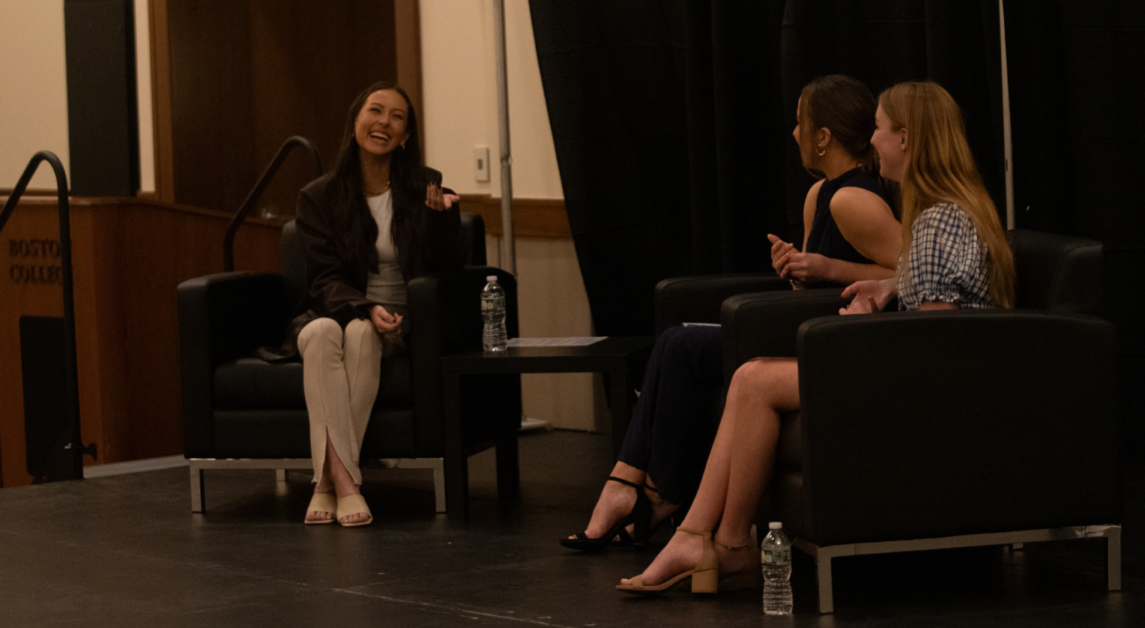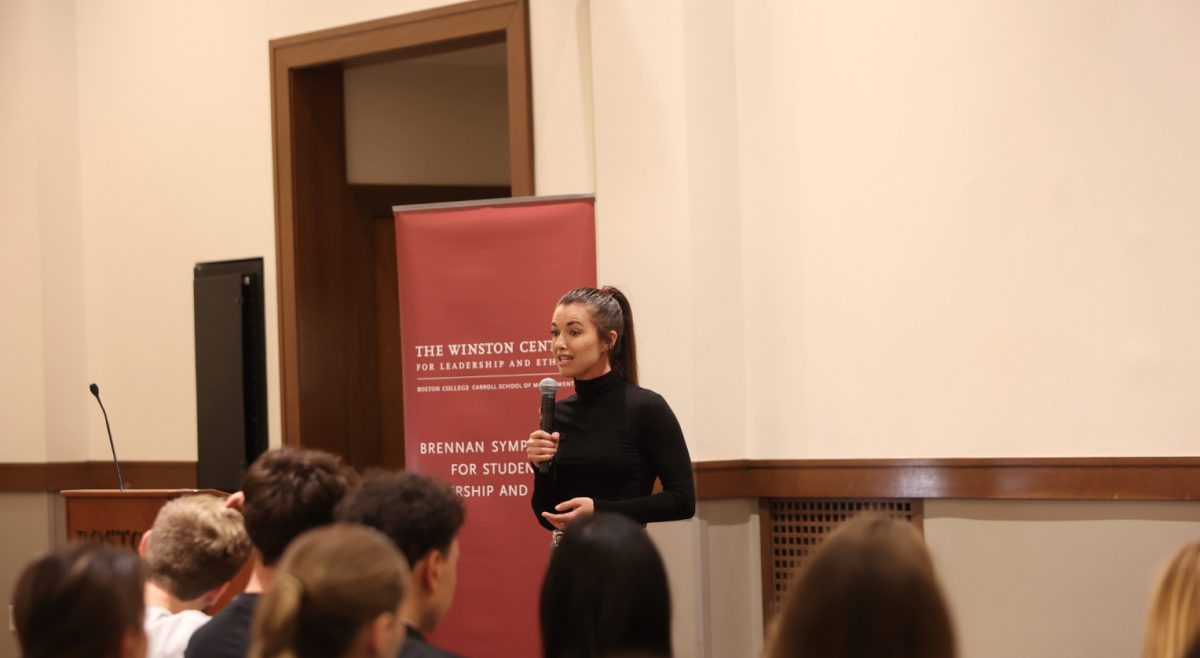“I remember seeing from the first night that search results for cochlear implants hit like an all-time high after the first episode,” Heringer said.
In a collaborative event hosted by the Campus Activities Board and the Undergraduate Government of Boston College Council for Students with Disabilities on Thursday. Heringer recounted her experience on the 25th season of The Bachelor, and later, the seventh season of Bachelor in Paradise.
“I called my mom, and I was just like, ‘What do you think of this? Would you be okay if I went on the show?’ … and she was just like ‘Yeah, if you share your story and someone can relate to it and it helps them, then it would definitely be worth it,’” Heringer said.
The Bachelor is a competitive environment where it is difficult to maintain one’s confidence, she said. So, Heringer said she felt empowered after immediately telling the bachelor, Matt James, about her cochlear implant.
“I did what I once thought was the scariest thing when it comes to dating, and doing that, in the first two minutes, I can take on whatever is next to come,” she said. “I just felt like I could truly be myself in that situation.”
Heringer said though she authentically expressed herself on the show, there were still challenges in the competitive environment.
“It sucks, obviously, when you get rejected … but if you put everything out there, you can’t really have any regrets about it,” she said.
After her season of the series aired, Heringer said she went from 800 to 70,000 Instagram followers. Heringer also said although the large following can be overwhelming, it is rewarding to use her platform to advocate for the deaf community.
Beyond continuing the conversation about the deaf experience, Heringer said her other goals include finding ways to gain more representation for people with cochlear implants in the mainstream media.
Heringer said that growing up she always had a positive outlook on her disability. Since her older sister was also born deaf and lives with a cochlear implant, Heringer said she felt comfortable with her diagnosis, seeing her sister as a role model.
But, middle and high school were turning points, Heringer said. She began to feel less confident in herself and in her disability.
“You have fully hearing individuals, or you have completely deaf individuals that use sign language, but then you don’t have a lot of people like me with cochlear implants, and so it was really hard feeling a loss of identity and a sense of ‘Where do I fit in?’”
Heringer graduated from Lynfield College in 2017, and while she said she enjoyed her college experience, being without her sister for the first time was a challenge.
“I kind of just quietly struggled until I reached a point where I was like, ‘Okay, I need to ask for help,’” she said. “And when I got to college, I didn’t really go in with the mindset of ‘Okay, I am going to tell people.’”
After the battery of Herringer’s cochlear implant died while she was in a conversation with a friend, she said her embarrassment led her to finally exit her comfort zone and be more open about her disability.
“Just because we have a disability doesn’t mean we’re not fully functioning individuals,” Heringer said.
Anastasia Coclin, Lynch ’25, who is working toward a minor in special education, said she was inspired by Heringer’s life story and appearances on Bachelor TV shows.
“People with disabilities are just normal people, and you shouldn’t just focus on that, but … try and focus on them as a person rather than just seeing them as a disability,” Coclin said.
Heringer emphasized the importance of allyship and asked fully hearing individuals in the crowd to advocate for accessibility.
“I think the biggest thing about [deafness] is that it is an invisible disability a lot of the time, so patience and grace goes a long way with us,” Heringer said.
Featured Image by Steve Mooney / Heights Editor













